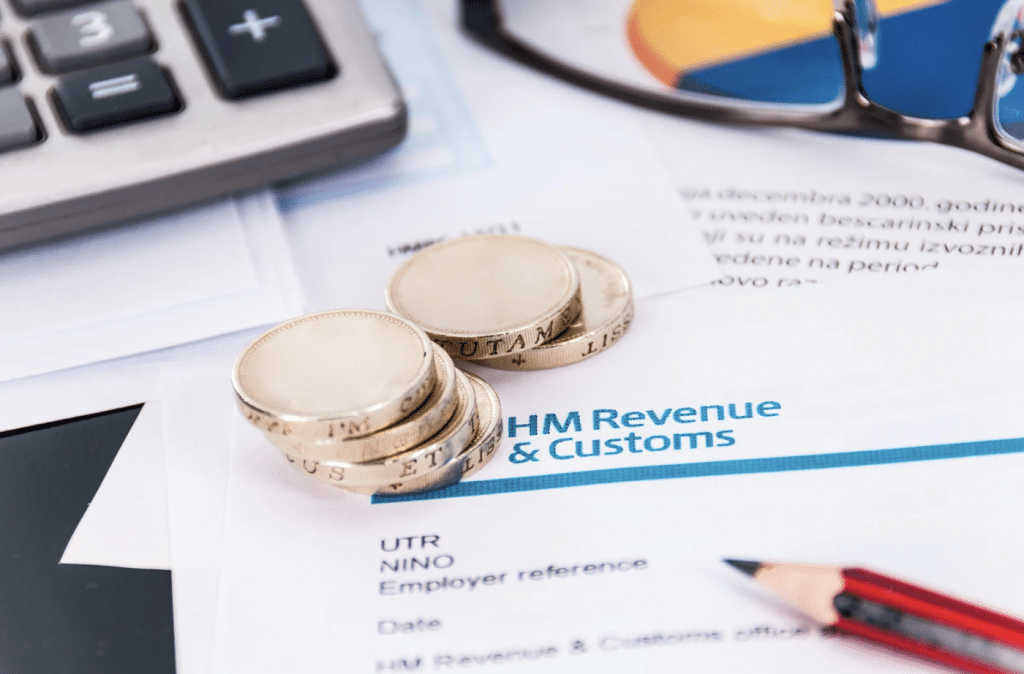Living and working across borders offers exciting opportunities—but it also brings complicated tax obligations that can seem overwhelming for many. When your financial life spans multiple countries, the risk of being taxed twice on the same income is real—and often confusing. Many expats discover too late that tax systems are structured in such a way to offer relief, but to gain it you must know and apply the rules correctly to avoid missing out and being taxed twice on the same income by two different countries. Without the right knowledge, what is simply an administrative formality, can quickly turn into a costly surprise.
This article is here to demystify the problem of double taxation. We’ll show you how to recognise the risks, understand the rules, and use the available legal tools to your advantage. Whether you’re planning an international move, investing abroad, or already juggling life between countries, the guidance is here to assist you with keeping your tax affairs clean, compliant—and optimised.
Table of Contents
- What Is Double Taxation and Why Does It Happen?
-
Common Scenarios That Trigger Double Taxation
- How UK Double Tax Treaties Work
- What Happens If There Is No Tax Treaty?
-
Double Tax Relief for Capital Gains and Inheritance
- Pensions and Tax Treaties – What You Need to Know
- Reporting Rules and Common Mistakes
- What If You Still Get Taxed Twice?
- Conclusion: How to Avoid Double Taxation
What Is Double Taxation and Why Does It Happen?
Double taxation happens when more than one country tries to tax the same income, gain, or estate. This often occurs when you’re considered a tax resident in one country but have income that comes from another, or perhaps you meet the residency criteria in both countries. For example, you might live in the UK but rent out a property in Spain. Both countries may have the right to tax your rental income based on the source of the income and your residency position combined.
The UK’s tax laws, like many others, are based on where you live (residency) and where your income comes from (source). If one country sees you as a resident and the other considers the income at hand as arising in their jurisdiction, you could end up paying tax twice—unless you take the right steps to avoid it.
Most of the time, this situation is resolved through double taxation agreements (DTAs), which the UK has signed with over 130 countries. These treaties decide which country gets to tax what—and how you can get relief if you’ve already paid tax abroad. You must both claim the relief and apply it correctly, otherwise the opportunity to avoid double taxation can be lost completely.
Common Scenarios That Trigger Double Taxation
Here are some realistic case studies that highlight how double taxation might occur:
Case Study 1 – Elena: The Remote Employee
Elena is a UK resident who works remotely for a tech company based in Spain. She performs all her duties from London and never travels to Spain for work. Under Spanish domestic law, Spain generally doesn’t tax non-residents on employment income earned entirely outside its borders. From the UK’s perspective, Elena is taxed on her worldwide income, including her Spanish salary. In this case, only the UK asserts taxing rights—Spain does not—so there’s no risk of double taxation.
Case Study 2 – Daniel: The Business Traveller
Daniel is a UK resident who works for a Spanish consultancy firm. While he works primarily from the UK, he regularly travels to Madrid to meet clients and participate in team strategy meetings. Spain taxes non-residents on income arising from work physically performed in Spain. So, even though Daniel lives and pays tax in the UK, Spain may also tax the portion of his salary earned during the days he works there. Without a treaty in place, both countries could claim tax on the same income, resulting in double taxation. In practice, however, the UK–Spain treaty allows Daniel to claim relief in the UK for Spanish tax paid on those days.
Case Study 3 – Priya: The Cross-Border Consultant
Priya splits her time equally between the UK and Spain. She earns consultancy income from UK and Spanish clients. Each country may claim that Priya is tax resident under its domestic laws. The UK taxes worldwide income of residents, and so does Spain. Without a treaty, she could be taxed twice on the same income. However, the UK–Spain double taxation agreement includes a tie-breaker rule to determine residency and avoid this conflict. Depending on where her permanent home or economic centre of life is, one country will be deemed the primary taxing authority.
These case studies demonstrate that double taxation often arises when income is linked to more than one country—either by source, residence, or where work is performed. Understanding both countries’ tax rules and applying treaty provisions where available is key to avoiding it.
How UK Double Tax Treaties Work
The UK’s double taxation treaties follow the OECD model, which serves as a global framework for deciding which country has taxing rights over different types of income. These agreements are designed to eliminate the risk of double taxation, while also preventing tax avoidance.
Each treaty is unique, but they typically include guidance on:
- Where employment income should be taxed—this is usually the country where the work is physically performed, though there are exceptions for short-term assignments.
- How to treat pensions—in many cases, pensions are only taxable in your country of residence, but government service pensions are often taxed by the paying country.
- How to split taxing rights for dividends, interest, and royalties—typically, the country where the income arises can apply a limited withholding tax, and the country of residence taxes the income in full, allowing a credit for the foreign tax paid.
To prevent double taxation, the treaties allow for two primary types of relief:
-
The credit method
This is the most common method used in UK treaties. If you’ve paid foreign tax on the same income that’s also taxable in the UK, you can deduct the foreign tax (up to the UK tax due) from your UK liability. For instance, if you paid 10% tax in the foreign country, and your UK rate is 20%, you’ll only pay the remaining 10% to HMRC. If the foreign tax exceeds the UK liability, the excess cannot be refunded or carried forward to offset again future years income.
-
The exemption method
This is rarer and usually applies to specific types of income such as certain pensions or business profits. The income is entirely excluded from UK taxation under treaty provisions. This method typically appears where the treaty gives exclusive taxing rights to the foreign jurisdiction.
When a person is considered a tax resident in both countries under domestic law, treaties use a tie-breaker rule to assign residence for treaty purposes. This rule considers:
- Where you have a permanent home
- Where your centre of vital interests lies (e.g. family, economic activity)
- Where you habitually reside
- Your nationality, if needed
This tie-breaker rule ensures that only one country can treat you as resident for treaty purposes, simplifying the application of the other provisions.
Income must be reduced by the lower of the actual foreign tax paid or the maximum rate allowed under the treaty Taxation (International and Other Provisions) Act (TIOPA 2010, s.18). If too much foreign tax was deducted—for example, if Spain withholds 19% on a dividend but the treaty rate is 10%—you must seek a refund from the Spanish tax authorities for the excess, as the UK will only credit 10%.
If you’re eligible to claim treaty relief, you must elect to do so on the SA106 Foreign pages of your Self Assessment return. You may also need to provide a Certificate of Residence from HMRC to the foreign tax authority to access treaty benefits such as reduced withholding tax at source.

What Happens If There Is No Tax Treaty?
Not every country has a double tax treaty with the UK. But even in those situations, there are still ways to avoid double taxation—thanks to a UK domestic mechanism called unilateral relief under the Taxation International and Other Provisions Act, Chapter 1.
This type of relief is available where UK residents have paid foreign tax on income or gains that are also taxable in the UK, but no treaty is in place to allocate taxing rights. As long as the foreign tax is comparable in nature to UK income tax, corporation tax, or capital gains tax, the UK will generally give you a foreign tax credit against your UK liability.
This credit is limited to the lower of:
- the amount of foreign tax actually paid, and
- the amount of UK tax charged on that same income or gain.
So if you’ve paid more tax abroad than the UK would charge, the excess can’t be refunded or carried forward—it’s simply lost. If the UK tax is higher, you only pay the difference. You can’t claim a tax repayment from HMRC for tax paid to another government.
It’s important to note that unilateral relief cannot be used if a tax treaty exists, even if that treaty provides less favourable relief. In those cases, you’re bound to follow the terms of the treaty under TIOPA 2010, s.11(2).
For instance, if you live in the UK and earn interest income from a country with no treaty—such as Bolivia or some smaller jurisdictions—you may still be able to reduce your UK tax using unilateral relief. This relief is only available if you’ve taken reasonable steps to minimise the foreign tax, such as claiming local allowances or exemptions available in that country.
The rules and examples for applying unilateral relief are explained in HMRC’s International Manual (INTM160000 series). Relief must be claimed on the SA106 Foreign pages of your Self Assessment return. You’ll also need to retain documentation proving the foreign tax was paid, and convert that tax to sterling using the exchange rate from the date it was deducted or paid.
Although not as generous or comprehensive as treaty relief, unilateral relief is a valuable fallback for UK taxpayers with income from non-treaty countries.
Double Tax Relief for Capital Gains and Inheritance
If you sell a foreign property or asset, you might be taxed by the local country—and again by the UK. UK residents are taxed on worldwide capital gains, even if those gains were made abroad.
Thankfully, UK rules allow relief. You can offset the foreign capital gains tax against your UK CGT bill—but only up to the amount of UK tax due. You’ll need to use Helpsheet HS263 and complete SA106.
For inheritance tax (IHT), there are two types of treaties:
- Pre-1975 treaties (e.g. France, India, Italy): these often exempt the UK from taxing foreign assets.
- Post-1975 treaties (e.g. USA, Ireland): these offer tax credit relief, so you pay the full UK tax and deduct the foreign tax paid.
If no treaty exists, you may still claim unilateral relief for IHT under Inheritance Tax Act 1984 IHTA 1984 s.159 if the foreign tax is similar in nature.
Case Study 4 – Marco: Selling UK Property While Living in Italy
Marco is an Italian national who lived and worked in London for over a decade before relocating permanently to Florence. He now qualifies as tax resident in Italy under both UK and Italian domestic rules. However, he kept a flat in London which he recently sold at a gain.
Under UK tax law, Marco is subject to UK Capital Gains Tax (CGT) on the sale of UK property, even though he no longer lives there. This applies to non-residents disposing of UK land or buildings under Taxation of Capital Gains Act 1992 (TCGA 1992 Sch 1C), and the gain must be reported on a UK CGT return within 60 days of completion.
At the same time, Italy—where Marco is now resident—also taxes worldwide income and gains, including foreign property disposals. So Italy may expect Marco to declare the gain and pay Italian tax on it too.
This creates a double taxation situation: both the UK and Italy are asserting taxing rights on the same gain. Thankfully, the UK–Italy double taxation agreement helps. The treaty allows the UK to tax the gain because the property is located in the UK, but Italy must give credit for the UK tax Marco has paid. He will still need to declare the gain in both countries, but he can avoid paying tax twice by claiming foreign tax credit relief on his Italian tax return.
If Marco forgets to report the gain properly or doesn’t retain proof of the UK tax paid, he could lose access to relief and face double tax. This case shows why understanding capital gains, tax residence, and treaty provisions is critical when dealing with assets when you are in a multi-juristicional situation.
Pensions and Tax Treaties – What You Need to Know
Pensions are one of the most frequently misunderstood income sources when it comes to double taxation. Many people assume that once they leave the UK, their pension income is no longer subject to UK tax—but that’s not always the case. In fact, how your pension is taxed depends heavily on the type of pension, where you live, and whether there’s a double taxation agreement in place.
For starters, UK state pensions are usually taxed in the UK, even if you’re living abroad. This can come as a surprise to retirees who relocate expecting lower tax burdens. Private pensions, including workplace and personal pensions, are often treated more favourably under treaty rules. In many cases, the treaty will assign taxing rights solely to your country of residence—meaning the UK won’t tax them at all.
Government service pensions, like those received by retired teachers, military personnel, or civil servants, are typically taxed only in the UK, no matter where the recipient lives. This is laid out in most treaties, which often include specific clauses to preserve the UK’s taxing rights on income from past public service.
Where things get complicated is when two countries both think they have the right to tax the same pension income. This might happen if your pension isn’t clearly categorised, or if you’ve moved recently and both countries treat you as a tax resident. In these situations, the credit method is your friend—you report the pension on your UK Self Assessment tax return, using the SA106 Foreign income pages, and claim relief for any foreign tax paid.
If you’re planning to retire abroad, it’s worth getting ahead of the curve. Research how your specific pensions will be taxed under the relevant treaty (if one exists) before you move. Knowing the rules in advance can help you plan cash flow, avoid nasty surprises, and even choose your retirement destination more wisely.
Reporting Rules and Common Mistakes
To successfully claim double tax relief, you must actively take steps on your Self Assessment tax return—relief isn’t automatic.
Most individuals will need to complete the SA106 Foreign income pages, which is where all relevant foreign income and taxes paid are reported.
If your double tax claim relies on a treaty provision, and the foreign authority requests confirmation of your UK residency, you should obtain an HMRC certificate of residence.
Additionally, foreign tax must be converted into pounds using appropriate exchange rates. HMRC will generally accept the rate that applied on the date the tax was paid or withheld (see HMRC guidance INTM162620 for details).
Documentation such as foreign payslips, tax assessments, and proof of withholding should be retained in case of any compliance checks.
When completing the form, you must also ensure that the correct box is ticked—specifically, the Foreign Tax Credit Relief box (Box 2 on page F1 of SA106). This is where you declare the total foreign tax relief claimed on income (excluding capital gains).
For capital gains, relief must be entered separately on page F6 and not duplicated in Box 2. Errors often arise when people forget to tick the correct box, fail to claim a treaty benefit altogether, or incorrectly claim relief for a tax that isn’t comparable to UK income tax, corporation tax, or capital gains tax. Using the wrong exchange rate can also lead to invalid claims, so accuracy is essential.
What If You Still Get Taxed Twice?
If both countries insist on taxing the same income and won’t budge, you may be able to trigger the Mutual Agreement Procedure (MAP).
This allows HMRC to negotiate directly with the other country’s tax authority to resolve the dispute. The process is found in most tax treaties—usually under Article 24 or 25.
While MAP can take a long time (months or even years), it’s a valuable last resort when informal relief options have failed.

Conclusion: How to Avoid Double Taxation
Double taxation can feel like a frustrating and expensive trap—but the good news is that the UK tax system gives you several practical ways to protect yourself. Whether you’re working overseas, receiving income from abroad, or planning your retirement in another country, you don’t have to face this alone or lose money unnecessarily.
The key is to understand your position and use the tools available. Start by checking if there’s a double tax treaty between the UK and the country you’re dealing with—these treaties are designed to stop the same income being taxed twice. Use the treaty rules to work out which country gets taxing rights over your income. Then, make sure you report things properly on your Self Assessment return, using the SA106 form to claim relief, and keeping supporting evidence like foreign tax receipts, local assessments, and proof of your UK residence status.
If there’s no treaty in place, you may still be able to claim unilateral relief, so it’s always worth checking your options. And don’t forget about the Foreign Tax Credit Relief box on the SA106—it’s easy to miss, but crucial if you want your claim to be processed correctly.
For more complicated areas, like pensions, inheritance tax, or capital gains from foreign property, it’s wise to speak to a cross-border tax adviser. They can help you interpret the fine print of international agreements and make sure you don’t miss out on valuable reliefs.
With the right planning, timely action, and a bit of expert support, you can stay on the right side of the rules—and avoid paying more tax than you need to.
Book a consultation with Expat Taxes today for clear, personalised advice, tailored to your situation.
DISCLAIMER: The material in this article is for general information purposes only and does not constitute legal or taxation advice. Legal, financial, investment and taxation advice should be sought before acting or refraining from acting. All information and taxation rules are subject to change without notice. Expattaxes.co.uk Limited (hereafter ‘the parties’) accept no liability for any action taken based on the information in this article or any of the articles on this website.
Written by Venita Machnicki, CTA (UK), ATT
Venita is a Chartered Tax Adviser with over 15 years of experience specialising in UK and international tax. She is a trusted expert in cross-border tax matters for globally mobile individuals, expats, and business owners. Venita combines deep technical knowledge with a practical, client-focused approach to help people navigate the complexities of UK tax while living and working overseas.





